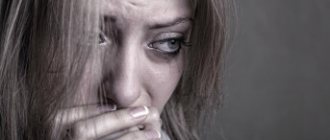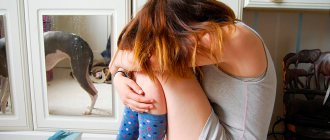June 23, 2022
Quality sleep is extremely important for the body. This affects the psychological and physical state of a person. During sleep, all functions of the body are restored, toxins are eliminated, the subconscious mind works intensively, and the information received during the day is absorbed. This process is as important as breathing and eating.
With the accelerated pace of life, people do not attach due importance to sleep. This is due to heavy workload, problems falling asleep, increased anxiety, leading to insomnia. But there are people who are prevented from getting enough sleep by a panicky fear of falling asleep for fear of dying in their sleep - hypnophobes. People with this fear may become exhausted as they become increasingly panicky as they prepare for bed. In order to fall asleep instantly, they need to use special drugs or rituals.
Over time, the fear of falling asleep begins to cause serious problems with physical and psychological health. It is important to work with this problem. In this article we will look at the common causes, symptoms and treatments for hypnophobia.
Causes of hypnophobia
- Constant nightmares are the main factor provoking the development of hypnophobia. When working with fear caused by difficult dreams, the most difficult task is to establish the true cause of the frightening dreams. According to experts, nightmares may be associated with unresolved internal conflicts or feelings of guilt. Anxiety that arises in the evening or at night can also affect the nature of dreams.
- Fear of dying in your sleep. People suffering from cardiovascular diseases and those who snore heavily are afraid of not waking up in the morning. Sudden cardiac arrest at night is not uncommon, and snoring can be a symptom of such a serious disease as obstructive sleep apnea syndrome (breathing arrest). With this disease, as a result of relaxation of the pharyngeal muscles and collapse of the respiratory tract, the breathing process of a sleeping person temporarily stops (for at least 10 seconds). The impetus for the development of a phobia is the unexpected death of a loved one in a dream.
- Fear of losing control over what is happening around and awareness of one’s vulnerability. The anxiety may be based on something called genetic memory. At all times, a sleeping person has been an easy prey for predators and enemies.
- A misfortune that occurred during sleep. Perhaps one day a hypnophobe woke up in an apartment engulfed in flames, or at night the home was destroyed by a natural disaster, and a person’s life was in danger.
- Living in a region where a man-made disaster or destructive natural phenomenon is possible, as well as in a zone of military conflict. For example, after the explosion at the Chernobyl nuclear power plant and the urgent evacuation from radiation-contaminated lands, the number of complaints about sleep problems and fear of falling asleep increased. The impetus for the development of the disorder was the shock caused by the tragedy. In the event of a military conflict, a person is afraid of falling asleep and dying from a shell hitting his home or when a building collapses.
- The desire to spend time on more important things or on another type of recreation.
- Close contact with a person suffering from hypnophobia. The phenomenon in which the fear of falling asleep occurs is called induced delusional disorder. With prolonged communication with an authoritative close relative or friend, a healthy person begins to develop the same delusional beliefs as the “carrier” of the phobia.
- Prolonged depression and excessive impressionability.
- A pathological connection between sleep and fear formed in the subconscious. Such a connection may arise due to frequent family quarrels, which greatly frightened the child and prevented him from falling asleep.
- Children's enuresis. If, after involuntary urination at night, the baby is severely scolded, punished or ridiculed, over time a persistent fear of falling asleep develops.
- Horror films, scary books, scary bedtime stories.
- Fear may be based on another phobic disorder - taphophobia, that is, the fear of falling into a lethargic sleep and being buried alive. However, with the current development of medicine, it is almost impossible to confuse lethargic sleep and death.
What will help in solving the problem
First, you can go to a psychotherapist.
It is quite possible to overcome the fear of falling asleep, but this will require a lot of effort, time and the help of professionals. The work always begins with a diagnosis - a psychotherapist or psychiatrist, during a personal conversation, asks the patient to describe in detail his experiences, emotions and physical sensations. To successfully get rid of a phobia, it is important to find out where the roots of the problem are hidden: in childhood night terrors, misfortunes that happened to loved ones, or diseases that undermined not only the health, but also the person’s mental balance.
Coping with a disorder that is identified in the early stages is much easier. In this case, turning to a specialist for help, you can hear: “If you are afraid of falling asleep, you need to concentrate on what will help you relax, relieve anxiety and tension, and forget about frightening moments.” Daily walking in the evenings, playing sports or regular exercise shortly before bed, swimming or simply spending time with your favorite pet will help with this task, which will bring a feeling of peace and security. Also, people with a fear of sleep are recommended to find an interesting hobby that would occupy their thoughts, not allowing them to switch to their fears.
Create the most cozy atmosphere in your bedroom / Photo by u/laneyr83 Reddit
Preparing for a night's rest and sleep itself should evoke pleasant associations in a person. To do this, you can make repairs or at least a small rearrangement in the bedroom, creating a cozy atmosphere, be sure to ventilate the room in the evenings and leave the window slightly open until the morning, choose a high-quality mattress and pillow, and at the slightest sign of anxiety, take a contrast shower. Giving up bad habits, following a drinking regime and a balanced diet that provides the body with the necessary amount of zinc, copper, magnesium, iron and calcium will also help improve your psychological state before bed.
Yoga and meditation bring good results - with their help you can relieve excessive stress and anxiety before bed, get to know your body better and understand its needs, learn to relax and get rid of fears. It is especially useful to combine these practices with aromatherapy - a few drops of patchouli or bergamot oil added to an aroma lamp or a cup of hot water will fill the bedroom with a pleasant aroma and give a feeling of mental comfort and peace. For the same purpose, you can make your own pillow for sleeping, filling it with medicinal herbs with a calming effect, for example, lavender or lemon balm.
And yet, the main method of treating fear of sleep is psychotherapy.
It is under the guidance of an experienced specialist that the patient can look into his past and find in it the causes of worries and fears. As a rule, a few sessions are enough for a person to realize the groundlessness and far-fetchedness of his experiences and, with the help of a psychotherapist, find effective ways to deal with them. The main thing is that the patient must understand that his disorder must be treated - somniphobia can make a person’s life unbearable, destroying his psyche and physical health more and more every day.
Manifestation of hypnophobia
As bedtime approaches, a person suffering from hypnophobia begins to experience increased anxiety. In order to be able to sleep, people exhaust themselves with excessive physical activity or use sedatives and sleeping pills.
In cases of severe phobic disorder, the patient tries to avoid sleep by any means. A person can remain without proper rest for several days. A striking example of the manifestation of hypnophobia is demonstrated in the film “Nightmares on Elm Street” . The fear of falling asleep and becoming a victim of a mystical killer who comes in dreams brought the main characters to physical exhaustion.
Strong emotional stress can overwhelm a person when talking about a dream and when thinking about it.
Sometimes you can notice that every time before a night's rest, a hypnophobe performs some rituals. Systematic implementation of certain actions helps reduce the level of emotional stress.
Childhood fears
There are several groups of fears not caused by enuresis, which are more common in children, but in adults they develop relatively rarely and usually have a rational basis.
The strongest is the fear of death. It can develop after a tragic event, such as the death of a grandmother. The child begins to feel that if he falls asleep, he will end up dead or be considered dead. Children with developed imagination often suffer from frightening dreams after watching aggressive films or cartoons. Even good fairy tales can provoke the development of a pathological condition, because they contain insects, fantastic animals, and wizards. These characters are transformed by the subconscious into frightening images, and the child is afraid not only to fall asleep, but even to stay in a dark room. It is important for parents not to miss the moment when the first signs of a problem appear, otherwise it will be difficult to correct the situation later.
The peculiarity of children's thinking is such that dreams are inseparable from reality. The kid is sure: everything that scares him actually exists, but appears only when he is sleeping. Sometimes children begin to experience fear of something that actually exists, but frightened them in a dream. This could be anything from spiders to a chair, meaning the object is not necessarily aggressive or dangerous.
Physiological symptoms
Physiological symptoms are divided into primary and secondary. Primary are signs of the phobia itself, and secondary are its consequence and are caused by chronic lack of sleep.
Primary symptoms of hypnophobia:
- excessive sweating,
- shiver,
- cardiopalmus,
- rapid breathing or shortness of breath,
- nausea,
- thirst and dry mouth.
Secondary symptoms of hypnophobia:
- drowsiness, weakness, apathy, general malaise,
- problems with information perception, memory and thinking disorders,
- blurred vision and eye pain,
- difficulties with coordination of movements,
- throbbing headache
- cardiovascular diseases and pain in the heart area,
- excessive emotionality, tearfulness, increasing sensitivity.
Consequences of hypnophobia
Hypnophobia negatively affects a person’s physical and mental health, so it must be treated, and treatment must be timely. The more severe a phobic disorder develops, the more damage it causes to all systems of the human body .
With a chronic lack of sleep, the immune system is weakened, the information received during wakefulness is not properly processed and absorbed, the removal of toxic waste products from the brain is slowed down, the hormone melatonin is not produced, and there is no quality rest.
A person suffering from hypnophobia becomes exhausted both mentally and physically. Due to a general deterioration in health, panic attacks may become more frequent.
Treatment of hypnophobia
When working with hypnophobia, it is very important to establish the true cause of fear. Otherwise, the patient may be prescribed the wrong treatment. For example, in the case of induced delusional disorder, in order to completely cure the “infected” person, it is enough to simply stop his contact with the “carrier” of the actual phobic disorder.
Other methods of working will not be effective. Induced delusional disorder is a very rare phenomenon, so specialists may miss the true cause of fear.
Hypnophobia can also be a symptom of thanatophobia or taphophobia. In this case, you need to work not with the fear of falling asleep, but with the underlying phobic disorder.
Therapeutic treatment
If the cause of the phobia is childhood fears, then group role-playing games and psychoanalysis have a good effect.
For a disorder caused by a traumatic experience in a person’s recent past, rational and cognitive behavioral therapy and an existential approach are used. The following are also used in the treatment process:
- neuromuscular relaxation methods,
- ideomotor therapy,
- sensory reproduction,
- autogenic training.
Yoga, meditation and aromatherapy can also help reduce anxiety.
Drug treatment
In the case of a severe disorder, in which a person has a prolonged lack of sleep and serious physical exhaustion, sleeping pills and the hormone melatonin are prescribed. This allows the patient to get at least a little sleep and regain his strength.
Symptomatic drug treatment can be prescribed for disturbances in the functioning of organs or body systems. However, the main work should be aimed at ridding the patient of irrational fear , and not at treating secondary symptoms of phobia.
Mental reactions
Fear is an emotion that arises when an imaginary or real danger appears. This danger causes a state uncharacteristic for a person, leading to an outburst of feelings, and forces the individual to mobilize all his strength to avoid danger. In other words, fear is the body’s defensive reaction to a stressful situation.
Natural fear is inherent in nature , it works at the level of instincts and experience acquired over life. Even a child is born with so-called fear hormones. A newborn baby exhibits instinctive forms of defense when loud sounds occur or an object approaches unexpectedly. At the same time, the baby begins to show anxiety: suddenly freeze, throw up his arms, cry. This reaction is considered normal and even necessary.
But if anxiety arises in a situation that is conditionally safe, then this is already considered an anxiety disorder, that is, a painful mental state.
Ambient atmosphere
When working with hypnophobia, it is important what attitude towards the patient is shown by his relatives. If an anxious person feels more confident in the presence of loved ones, then one of the relatives should stay close to the hypnophobe during his sleep.
Criticism and ridicule can aggravate the emotional stress of the patient. Having a pet can help reduce anxiety. A favorite activity or hobby helps to partially repress negative thoughts.
Features of hypnophobes
Being afraid to sleep, a person often understands the negative impact of the situation, but anxiety does not leave him on a subconscious level. Specific features characteristic of hypnophobes:
- irritability and chronic fatigue;
- fear of loneliness (the problem is partially alleviated if you get a dog or other pet);
- deterioration in performance, decreased immunity;
- frequent colds and other diseases to which a depleted body is susceptible;
- depression and related mental disorders;
- deterioration of memory, concentration and mental clarity.
How to improve your sleep quality?
- The sleeping place should be comfortable.
- Before going to bed, you need to ventilate the room well.
- Your daily diet should include more fruits and foods containing zinc, copper, calcium, iron and magnesium. Additionally, you can take vitamins.
- It is necessary to give up alcohol and quit smoking.
- Sports and evening walks will help reduce the likelihood of painful dreams.
- You should avoid books, films and games with scary content.
Torture by sleep deprivation (sleep deprivation)
The negative consequences of lack of sleep have been known for a long time. Sleep deprivation was used as torture both many centuries ago (for example, in Ancient China) and in the recent past. In 1936-1938, NKVD officers exhausted prisoners with interrogations that lasted several days without a break for sleep.
Similar methods of torture were used on American pilots captured during the Vietnam War. People were forced to sit on a chair in the same position for several days, without giving the prisoners the opportunity to sleep.
In the 2000s, in the American Guantanamo Bay camp, prisoners were harassed by bright spotlights and loud, continuous music that did not allow them to rest or sleep.
However, sleep deprivation can also be used to benefit a person. In 1966, German psychiatrist Walter Schulte began using sleep deprivation techniques to treat various types of depression . Until now, sleep deprivation is considered the most effective method of treating depressive conditions.
Fear of sleeping alone is a phobia
July 25, 2022, 5:20 pm
Good day everyone. My name is Alina, I’m already 22 years old, and as for such fear, I’m already old enough to be so afraid of the dark, namely, to stay at home alone in this very darkness. it all started 6 years ago. I stayed at home with my stepfather (I didn’t see him as a defender, since he beat me, thank God he and my mother didn’t live together for a long time) and then at 3 o’clock in the morning. I remember well. it was 3.05. it’s hard to write. I hear a noise (something fell in the kitchen), I react very quickly to noise, and my stepfather was fast asleep in the next room. I turned on the light and went to the kitchen, but something inside didn’t let me in, I didn’t open the door there, she returned to her stepfather and in a trembling voice said that there was noise there, we went there, we went in, and there was a window that was open, the tulle and curtains were moved to one side. Sorry for my Russian, my native Ukrainian. He went out into the street with a lantern, but there was no one there. Since then, I often wake up at night and I’m scared to look at the clock; I sleep when I’m alone, with the clock on. light, but when I turn it off, it starts to become a little clearer. I’m very afraid. Help
July 25, 2022, 5:43 pm
I’m 25. Nothing bad has ever happened to me in my life, but after I turned 20 or a little later, I’m afraid to spend the night alone. Before this age, I often spent entire weekends alone, I had never encountered anything like this. Now, when it’s getting dark and there’s no one in the house, I turn on the TV in the next room, music, and don’t let the cat out of the room, just so as not to feel alone in a dark apartment. When I need to go to bed, the worst thing is, I turn off the light, jump into bed on the run and cover my head. God forbid I want to drink or go to the toilet at night - I won’t even be able to get up - it can take me 30 minutes to decide. This is how I live. What is there to do?? Since there are no prerequisites for such fear, I don’t think that a psychologist or anyone else can help me. In general, after I turned 20, I began to be afraid of anything; before that I was a daredevil.
July 25, 2022, 5:49 pm
I'm 34 and this also started recently. I imagine that they will climb in and kill me. but I guess where the legs grow from. Throughout my childhood, my drunken father would come at two in the morning and I was afraid that there would be another scandal, he would go wild and kill us.
I’m also afraid if I sleep alone at home with only the lights on and the TV on))) I’m not ashamed. I just accepted the fact that I am very impressionable. Author, if you believe in God, place the icon near the bed, cross the bed and the room before going to bed, and sprinkle it with holy water.
Pfft, I’m 31 and I’m so fucking afraid of being alone, I went alone to the dacha to spend the night, it didn’t help, the fear only intensified.
July 25, 2022, 5:51 pm
sounds like anxiety neurosis author. I advise you to contact a psychotherapist to solve this problem. For reference, neuroses take years to mature, and the incident you described could have become a catalyst for the development of a phobia. But most likely this is not the reason. Contact a psychotherapist, analyze and solve all your phobias and fears, obvious and hidden.
July 25, 2022, 6:02 pm
on the first floor, install bars. You can have a cat or a dog, they will hear first. There are more pots on the windowsill, and basins under them. Sleep with the stun gun on.
July 25, 2022, 6:07 pm
on the first floor, install bars. You can have a cat or a dog, they will hear first. There are more pots on the windowsill, and basins under them. Sleep with the stun gun on.
That time there was a dog, but she didn’t react, at night she doesn’t even react to my friends, at whom she barks during the day. And the cat slept with me then like dead. I need to save light)) and get rid of fears.
m.woman.ru











